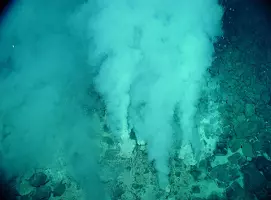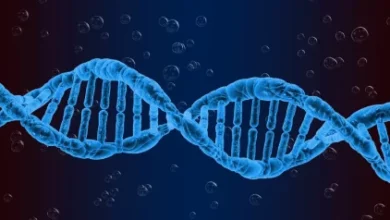What is biology? Definition and concept
To get closer to what biology is, one definition is that biology is the science that studies all living organisms , describing and classifying the shape (morphology), studying the phenomena that occur inside them ( cell biology , physiology) and putting them in relation to each other. It also tries to explain the different models of life and the common characteristics in order to explain the term “LIFE”.
What is biology?
[box type = »info» align = »» class = »» width = »»] What is biology? The word biology is made up of the “bios” or Greek term that designates life, and “logos” that is the Greek term for science. Therefore, biology is the science that studies life so easy to write and so complicated to define. [/ Box]

The biology, and other sciences, is based on an experimental model : reproduction of the observed phenomena in order to understand the mechanisms at the base.
From this, many other branches of biology and auxiliary sciences arise , such as ecology, botany, zoology, genetics … Throughout this article some of the sciences with which biology is related and without which it will be broken down will be broken down. the concept of biology could not be properly understood .
Origin and history of biology
The first time the term “biology” was used was in 1800 in Germany . As a curiosity it was used independently by three naturalists of the time: Karl Friedrich Burdach , Gottfried Reinhold Treviranus and the most famous of them, Jean Baptiste Lamarck. However, the word biology had already been used previously by Michael Christoph Hanow in 1976 in volume 3 of his book Philosophiae naturalis sive physicae dogmaticae : “Geologia, biologia, phytologia generalis et dendrologia.”
The first studies in biology date back to Ayurveda (Ancient Egyptian medicine), Aristotle (to a great extent) and Galen (one of the most famous doctors in the history of mankind). Despite the darkness of the Middle Ages, biology continued to be studied thanks to great Muslim doctors like Avicenna.
It is from the Renaissance and the Modern Age when biology begins to be the science that it is today. Biology begins to be based on empirical facts and observations of nature in a more experimental way, from this time Linnaeus is one of the naturalistic biologists who invented the classification system of species and named many of them together with Buffon.
We can speak of biology as a modern science, autonomous from medicine, since the late seventeenth century when the first microscopes were invented and thus extremely small organisms can be studied, more information in this post about the history of the study of the cell .
In fact, in the 19th century, people began to talk about cell theory, organisms, their structure, Darwin’s evolutionary theory, Mendel’s laws of genetics, which over the centuries will give rise to the different branches of modern biology and that are the basis of what biology is today.
In the 20th century, biology focused more on the chemical components of living matter and their observation through electron microscopes. One of the reasons this approach has long prevailed as the basis of study was the development of the concept of homeostasis by Claude Bernard:
[box type = »info» align = »aligncenter» class = »» width = »»] Within biology, homeostasis is defined as the ability of living organisms to maintain their internal stable condition through the exchange of matter and energy with the environment, generally through metabolism and is the basis for the functioning of the endocrine system . Some examples of homeostasis are the regulation of the pH of the blood or the regulation of the body temperature of mammals. Homeostasis is necessary for interactions with the environment and to make living organisms independent from external conditions. [/ Box]
A tour of biological science
After explaining evolution and what biology is , we start from the beginning and we can say with some confidence that the substances present in the primordial system (or primordial broth) gave rise to the necessary energy, to the first organisms in a spontaneous process that gave way to the first living unicellular organisms.
The study of the biology of microorganisms and the biochemistry of the processes , leads biologists to propose hypotheses about how these first organisms were. One of them suggests that the first organisms were photosynthetic, transforming the atmosphere into a mass, towards one rich in O2 where other types of heterotrophic organisms with an increasingly complex biology could develop.
An example of a heterotrophic organism and one of the most studied within biology and microbiology is the bacterium Escherichia coli . This bacterium can grow and multiply by absorbing only glucose and oxygen from the outside but only a part, returning degradation elements such as CO 2 and water to the environment, in addition to the degraded energy in the form of heat at the temperature of the environment itself. The rest of the glucose is used to grow and multiply.
We have seen how, over millions of years, the first organisms had to be photosynthetic and only in a second moment did chemoautotrophic organisms appear, capable of receiving energy from oxidation-reduction reactions. All these processes led to increasingly complex organisms such as the case of the bacterium Escherichia coli .
The most important discovery and that later gave rise to all the branches of biology has been the CELLULAR THEORY, which is one of the bases of the study of biology, here we explain it in detail.
The discovery of cells dates back to the 17th century , during the time of the simplest microscopes and it took about 200 years to understand their diffusion in all living beings. The first scientist to observe a cell was an Englishman, Robert Hooke (1635 – 1703), who in 1665 identified numerous empty pores in a fine line of wood. Hooke did not connect these pores to a possible organization of living beings, but gave a name, the cell.
[box type = »info» align = »» class = »» width = »»] Thanks to cell theory, over the centuries we have arrived at some of the most innovative achievements in the field of applied biology, and in Particularly in pharmacology, the discovery of sulfonamides and the next step have been antibiotics, as the basis for modern biology. [/ box]
Other milestones in biology
In reality there are other very important achievements as well, such as, for example, systematics and safety in the experimental method; the effort to push the new limits to biology through more modern and more precise optical microscopes.
In many fields of biology, which seemed to escape from experimental analysis, thanks to this valuable instrument it has been possible to develop a statistical method of the data. This aspect is important especially for geneticists but also for other disciplines.
Genetics and evolution
If one aspect of biology has marked a before and after in this science, it was the discovery and study of genetics . The discovery of genes, the laws of heredity and their implication in the functioning of every living being has been fundamental for the development, not only of biology as a science but also of medicine.
The discovery of genes marked a before and after in the study of the biology of organisms and in the treatment of human diseases. The recent CRISPR RNA editing technology is a breakthrough based on the discoveries made earlier.
Another very important aspect is the branch of evolution, which is basically a genetic problem, it has been introduced especially in recent years in the field of experimental research.
An important branch in genetics is population dynamics or the physiology of continuously developing populations; problems such as the concentration of genes in different populations under different environmental conditions, selection, the concentration of genes, that is, all the genetic variations that are the basis of the hereditary component of a population, which must constitute the basis of each evolutionary process .
In fact, the mechanisms of selection are two, natural selection and genetic selection. The natural one favors the genes of the DNA that improve the capacity of survival and reproduction of the organism. The genetic drift is the random change in allele frequency, caused by random sampling of genes from one generation to the next. Genetic drift allows the variability of genes and is therefore essential for the survival of the species.
One of the most important in the field of natural selection is the scientist who completely changed the view of biology, Charles Darwin. He was the forerunner of the scientific method applied to this branch of biology and since then other branches began to apply it as well, such as ecology, ethology and biogeography, which for many years have been only descriptive branches, have been included in the methods scientists.
As regards morphology, in recent years this branch has turned from being descriptive to being based on the scientific method. In fact, we go from studying morphological aspects to understanding whether there is a correlation between external aspects at the molecular and physiological level and thus we begin to study aspects such as fertilization. Biochemistry is key to the molecular function of the interior of the cell.
New specific substances are being discovered that intervene in the union between sperm and egg and also in the first steps of activation. The embryology studies the chemicals that allow you to search based on the fundamental process of development: differentiation. Geneticists know that genes intervene at a very specific time during a series of chemical reactions, with the ability to make possible or block a certain metabolic process, for example the synthesis of a substance.
Biology is the key
I believe that biology as we know it and understand it today has evolved a lot as a science and field of study in the last two centuries , while its object of study has done so over millions of years and we know it thanks to some discoveries that have led us to understand other related branches.
In reality, biology and especially its operation is the basis for each organism to live and develop. Without her nothing would have been possible life. That said, biologists, we are still a long way from understanding it perfectly and for that reason it is very important to continue studying it, investigating it because we know only a small part of our organism, not to mention the millions of species that exist and we do not know or do not have them. means to be able to study them and know their biology or functioning.
For all this it is easy to think that the study of biology has given way to numerous branches or sciences that come from it and that have allowed progress. Some of these sciences are botany, zoology, genetics, ecology … sciences that are part of biology.


